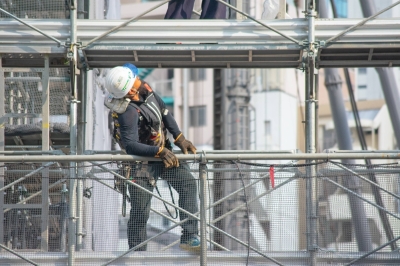An infrastructure ministry council began discussions Monday to devise measures against building-strength data fabrications in the wake of the spreading shock waves being felt nationwide over revelations that an architect faked data for scores of buildings, forcing widespread closures and evictions.
The panel in charge of ways to improve the nation's social infrastructure, set up by the Land, Infrastructure and Transport Ministry, will outline an interim package on the measures in February, ministry officials said.
The panel will propose revisions to the building standard law and the law to govern architects to effect some of the measures, particularly those needing immediate introduction, the officials said, noting bills to revise the laws will be submitted to the ordinary Diet session set to start early next year.
The day's meeting is expected to investigate why both municipalities and designated private agencies in charge of checking building plans failed to detect structural data fabrications by disgraced architect Hidetsugu Aneha.
Based on the investigation, the council will find ways to strengthen the inspection functions of these entities while having them accept responsibility in cases where they fail to detect fabricated data, the officials said.
In addition, the council is expected to discuss ways to strengthen the supervision of designated private inspection agencies by the central and municipal governments, they said.
The council will study tougher penalties for architects who have designed buildings a risk of collapsing in a major earthquake, including raising fines substantially from the maximum 500,000 yen at present and requiring architects to renew their licenses after a certain time, the officials said.
Measures being considered for real estate developers and construction firms include requiring them to join liability insurance schemes so they can finance the rebuilding of properties found to be defective.















With your current subscription plan you can comment on stories. However, before writing your first comment, please create a display name in the Profile section of your subscriber account page.